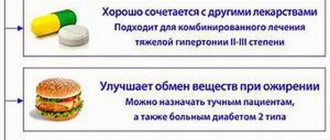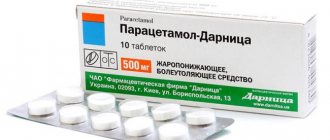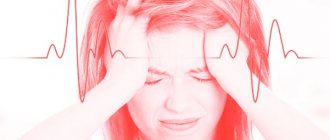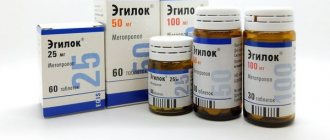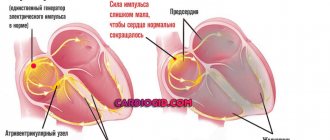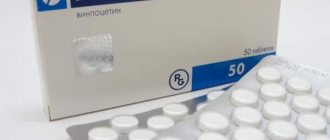VSD is a common set of symptoms that in our time has affected not only adults, but also children. There are many causes for this disease, and therefore each clinical case has its own individual characteristics and many approaches to treatment. A common symptom – surges in blood pressure – also cannot be called constant and unambiguous. Pressure during VSD can either increase or decrease, leaving the diagnosis legitimate. With this disease, it is important to understand that “blood pressure instability” is a symptom that disarms the patient in the face of many life-threatening situations.
Over many years of observing, diagnosing and treating patients, specialists at the Yusupov Hospital have proven their ability to help patients solve their problems, improve their quality of life, and move from “tolerate” to “overcome.” Doctors at the Yusupov Hospital will help determine possible causes and select medications that will help a specific patient and in a specific clinical situation.
High blood pressure - causes and symptoms
An increase in blood pressure is most often a reaction of the human body to an irritant (stress, hormonal changes, climate change, etc.). The body, in turn, compensatoryly increases the heart rate, causing the heart to work harder and with greater force. But the opposite situation also happens - when high blood pressure is accompanied by a low heart rate. The reason for this is impaired regulation of the cardiovascular system. With low heart rate and high blood pressure, the brain and heart are primarily affected. Disruption of the blood supply to these organs can threaten the patient's life, so he needs immediate examination and treatment.
Over time, pressure surges become more and more common. This affects a person’s well-being. Symptoms that may bother the patient:
- increased heart rate;
- dizziness;
- headaches of different localization;
- chills or fever;
- short-term visual impairment (“spots”).
These symptoms make a person forget about everything and concentrate only on how he feels, thereby aggravating the situation. When measured with a tonometer, the increase in blood pressure can reach extremely high numbers. At the same time, the headache intensifies, the heartbeat quickens, and the fear of death appears. Despite such poor health, these pressure surges do not carry with them serious consequences. In no more than two hours, the crisis will end with increased urination.
In this case, it is very important to differentiate high blood pressure from a hypertensive crisis, which is dangerous to the health and life of the patient and requires urgent therapeutic measures.
Stress and hypertension: a psychologist's view
Home — For the public
- Map of medical organizations
- Vaccination
- Clinical examination
- Fluorography
- Addresses and opening hours of clinics
- Emergency rooms
- Oncology
- Where to take an HIV test
- Healthy child's office
- Services
- Prevention of CVD
- Disease Prevention
- World Patient Safety Day
- Newspaper "Medical News"
- specialist
- School of Health
— Disease prevention
- HIV infection
- All about vaccination
- All about proper nutrition
- Hepatitis
- Flu
- Dementia
- Schoolchildren's health
- STD
- Tick-borne encephalitis
- Whooping cough
- Measles
- Legionellosis
- Meningococcal infection
- Oncology
- Acute intestinal infection
- Pediculosis
- First aid
- Pneumococcal infection
- Pneumonia
- Prevention of rabies
- Dependency Prevention
- Rotavirus infection
- Diabetes
- Cardiovascular diseases
- Injuries
- Tuberculosis
- Tularemia
- Physical activity
- Obstructive pulmonary disease
- Exotic infections
- Ecology
- Why is swimming in ponds dangerous?
— Cardiovascular diseases — Blood pressure and stress: a psychologist’s view
In 1935, the American physician and psychoanalyst Helen Flanders Dunbar’s book “Emotions and Somatic Changes” was published, in which she sought to show the connection between personality characteristics and physical diseases: thus, in her opinion, the hypertensive personality type is characterized by:
- increased anger, intolerance, irritability;
- strong internal tension
- strong involvement in work, the ability to struggle for a long time to achieve a goal even with significant resistance from the outside;
- a pronounced need for approval from others, especially authority figures or leaders;
- ambition, need for competition;
- excessive responsibility, perfectionism.
In 1959, American cardiologists R. Rosenman and M. Friedman described and called the behavior of this type of personality “type A behavior,” adding to Dunbar’s theory: a person with “type A” behavior is often dissatisfied with himself and is strict with himself. Such people often do not pay attention to their ailments; if necessary, they work even when they feel unwell. They are characterized by excessive tension in the facial muscles, haste, “explosive” speech, a constant feeling of lack of time, “exhaustive” activities, and inability to rest.
In the early 70s, M. Friedman and R. Rosenman obtained evidence that type A behavior is a risk factor for diseases such as myocardial infarction and angina.
Stress researchers offer tips to help Type A types allocate their resources more realistically and achieve balance in their lives.
- Learn to put off solving problems until you are able to cope with them: people prone to stress often cannot distract themselves, continuing to revolve in a circle of problems, worrying about unlikely opportunities, not solving the problem, but only aggravating their condition.
- Learn to relax to give your body and mind a break from physical and psychological stress: replace intense physical exercise with calm, relaxing exercises.
- Develop the ability to see the events of your life as a whole, without losing a broad perspective or getting bogged down in the small details of a situation.
- Manage the development of stressful situations by implementing realistic planning; Don't get lost when problems arise. Be prepared to face difficulties, do not run away from difficulties.
- Know your limits and don't allow yourself to overexert yourself. A certain level of exercise is beneficial and stimulating, but excess exercise is risky for health.
- Be in touch with your feelings, be able to understand and accept them.
- Many people who are greatly affected by stress spend much of their energy worrying about what others think.
- Remember, “Murphy’s Laws”: if there is a possibility that some kind of trouble can happen, then it will definitely happen. Don't lose your sense of humor and common sense.
- Maintain a balanced attitude towards different areas of life: work, hobbies, family.
Low blood pressure - causes and symptoms
Low blood pressure is also a complication of VSD, causing no less trouble for patients. The patient's body reacts to irritating factors by dilating peripheral vessels, and inhibition dominates in the central nervous system. Patients justify low blood pressure for themselves with all sorts of secondary reasons, without noticing other symptoms.
The most common symptoms of low blood pressure are:
- excessive weakness;
- pathological fatigue;
- increased drowsiness, light sleep itself, frequent nightmares;
- dizziness to the point of fainting;
- impairment of cognitive functions (memory, attention, concentration).
Anxiety and stress. Cardiologist on how to avoid high blood pressure and its consequences
Our body reacts to any stressful situation, positive or negative, by increasing blood pressure, increasing heart rate, and constricting blood vessels. This occurs due to an increase in the body's secretion of epinephrine (adrenaline) and cortisol. They are also called stress hormones.
If a person is healthy, then this reaction of the body will gradually disappear, and blood pressure, pulse and blood vessels will return to normal. If the vessels are affected by atherosclerosis, and the readings on the tonometer are far from the target values, the blood pressure is not controlled, such changes can result in a hypertensive crisis or a vascular accident (heart attack or stroke). Why is stress dangerous? How can you get rid of the consequences of its influence? And why is it so important to monitor your blood pressure levels? A journalist from the information portal “Healthy People” asked our permanent expert – head of the Department of Cardiology and Rheumatology of BelMAPO, MD, Professor Andrey Pristrom .
Vascular health and duration of stress
Increased blood pressure as a result of stress is essentially a normal reaction of the body. How severe the consequences will be depends on many factors. For example, on the state of a person’s health, the presence of diseases of the cardiovascular system, how affected the vessels are by atherosclerosis, whether he has arterial hypertension. And in some situations, the duration of stress can play a key role in the development of negative consequences.
According to Andrey Pristrom, when the stressful state ends, the cardiovascular system should gradually return to its original level, and blood pressure returns to normal. Normally, the reaction to stress is quite short-term. There was an emotional outburst, a rise in blood pressure, and then a decrease. And everything happens quite quickly.
Andrey Pristrom: “Therefore, most acute situations end happily. The vascular bed of a healthy person can withstand even very high pressure figures. There have been publications regarding what pressure is recorded in weightlifters when they lift the barbell, i.e. at the moment of greatest tension. So, the systolic (upper) blood pressure at this moment rose to 300 mm Hg. Art."
In cases where the vessels are damaged, there is atherosclerosis or other diseases, even with a relatively small increase in blood pressure, vascular accidents (heart attacks and strokes) can occur. Moreover, in this case, not only a high rise is dangerous, but also a sharp decline.
The most negative factor in its impact is long-term, so-called chronic stress. Because of this, the cardiovascular system is constantly under tension, working to the limit and ultimately remaining in the same state. As a result, the stressful situation ends, but the reaction to it remains.
Andrey Pristrom: “If we consider the currently known causes that influence mortality as a result of cardiovascular diseases, then psychosocial factors increase the likelihood of an unfavorable outcome by approximately 2 to 4 times. Primarily due to the development of complications.”
If a person is in uncomfortable conditions for a long period of time, the nervous system is constantly tense, he experiences anxiety and excitement, and over time he develops so-called psychosomatic diseases: the state of the nervous system provokes the development of structural pathology (diseases). Arterial hypertension is one of the clearest proofs of this.
Andrey Pristrom: “Emotional people are more likely to develop hypertension. There are several behavioral personality types. From the point of view of cardiovascular risks, personality type D is the most unfavorable. It is also called “suffering”. These are those people who are too emotional about any troubles, small or large, who worry about themselves, their loved ones, and those around them.”
How to help yourself
Is it possible to prevent the negative effects of stress or make its manifestation less pronounced? As Andrey Pristrom explained, everything that in one way or another can cause the development of cardiovascular diseases can be conditionally divided into controllable (lifestyle, habits, etc.) and uncontrollable factors (for example, age, gender). A person is able to influence the former, but the latter cannot be corrected.
Andrey Pristrom: “Creating a healthy lifestyle leads to normalization of blood pressure. The body’s response to many factors, including stress, changes, and the rise in blood pressure will not be so significant.”
It is no secret that one of the unfavorable factors in terms of the development of arterial hypertension (including the frequency of hypertensive crises) and other cardiovascular diseases is smoking. It triggers processes in the body that significantly reduce the elasticity of the vascular wall and provoke the development of atherosclerosis. This means that the vessels are not able to adequately respond to changes.
In addition, 30–60 minutes a day should be allocated for physical activity. Firstly, they help maintain a healthy body weight, because excess weight is another cause of arterial hypertension and an increased risk of hypertensive crises. Secondly, playing sports strengthens the heart and blood vessels. Thirdly, exercise itself is a good way to relieve tension, anxiety or stress.
During physical exercise, it is important to focus on your heart rate. It is individual for everyone and depends on age. The optimal training heart rate is approximately 70% of the maximum heart rate, which can be determined by the formula:
220 – age = maximum heart rate
In this case, physical activity will be most effective and safe.
Andrey Pristrom: “It is advisable to maintain this pace for 30–60 minutes. It is in this case that the cardiovascular system will receive a beneficial load. At the same time, you should not achieve these goals too quickly, but you need to strive for them (it is advisable to reach a working training level within 1–2 months) and then maintain this training regime.”
An adequate level of physical activity, the expert added, helps ensure that even with strong emotional stress, blood pressure will not go through the roof. For those who already have arterial hypertension, regular exercise significantly reduces the frequency of hypertensive crises and improves blood pressure.
Andrey Pristrom reminded that if antihypertensive drugs are prescribed, they should be taken constantly. With their regular use, the increase in pressure will not be significant, and if it does occur, it will cause less damage to health. Such drugs not only regulate blood pressure, but also protect target organs (vessels, brain, heart, kidneys). If the root cause of deterioration in well-being was indeed stress, the specialist recommended contacting a psychotherapist, who, in addition to the main therapy (prescribed by a cardiologist to normalize blood pressure), will suggest additional therapy aimed at restoring mental balance.
Andrey Pristrom: “First of all, it is necessary to understand what really caused the increase in blood pressure. If the cause is a stressful situation, then healthy people can use mild sedatives. Sometimes, to reduce blood pressure, it is enough to remove the traumatic factor.”
Subscribe to our Telegram channel, Facebook groups, and stay up to date with the latest news! Only interesting videos on our YouTube , join us!
Treatment of manifestations of VSD in Moscow
Due to the fact that VSD brings a lot of discomfort to the patient’s life, most begin to self-medicate. Pressure surges are so unstable and inconsistent that patients take several drugs from different groups that block each other’s action.
Treatment of VSD should begin only when the organic nature of the symptoms is excluded, because many diseases of the cardiovascular and endocrine systems, allergies, focal infections, etc. have a similar clinical picture.
VSD therapy is complex:
- lifestyle modification: proper nutrition, daily routine, stress management (possibly consulting a psychologist);
- attracting specialists from various fields (gastroenterologists, endocrinologists, cardiologists, neurologists, etc.);
- drug treatment aimed at relieving autonomic disorders of VSD (Concor, Paxil, Teraligen);
- physiotherapeutic methods of treatment.
Due to constant anxiety, fear of attacks, drowsiness and disturbed sleep, patients cannot cope with this on their own. The prescribed drug "Paxil" successfully copes with its task - sleep improves, patients get rid of panic attacks, and anxiety goes away. An important feature of Paxil is its ability not to affect blood pressure, which allows it to be used in patients with both hyper- and hypotension.
For mild disorders, if treatment was started in a timely manner, Teraligen performed excellently. It has a mild sedative effect and begins to act almost immediately after administration. It is also important that the drug potentiates the effect of other drugs, so it has to be taken in small dosages, and patients really like this.
For patients with the hypertensive type of VSD, our specialists successfully prescribed the drug Concor, which blocks signals that stimulate the heart, to patients at the Yusupov Hospital.
Concor for VSD reduces the heart rate, normalizes heart rhythm, helping to reduce the heart's need for oxygen. Concor for VSD helps to reduce activity in the sympathetic department of the autonomic nervous system and acts directly on the heart muscle. Concor is a drug that has proven itself to normalize heart contractions in the presence of VSD. The dose of the drug is selected and adjusted only by the doctor.
Patients of the Yusupov Hospital note a quick and long-lasting effect, and if the dosage prescribed by our specialists was followed, no side effects were observed.
“Anaprilin” has also proven itself well for the treatment of VSD. Although this drug is non-selective and acts not only on cardiac receptors, it is the drug of choice when an immediate effect is needed. By reducing the strength and frequency of heart contractions and blocking the action of hormones, it reduces the heart's need for oxygen. Under the influence of anaprilin, blood pressure decreases during VSD. Patients note the advantage of Anaprilin for VSD in that it works quickly, and this is a priority.
Paying attention to the mechanism of increased pressure during VSD, it would be logical to talk about “Enap” in this article. The drug prevents the narrowing of the arteries, preventing the development of hypertension and preventing an increase in pressure during stress or the action of a reflex mechanism. This drug has shown a good effect in patients with frequent panic attacks, since under the influence of the drug the receptors become immune to adrenaline, which makes it possible to break the vicious circle and cope with the symptoms of VSD.
How to return the pressure to normal?
The main thing when a panic attack is approaching is not to panic. Various types of relaxation, physical exercises, breathing exercises, and yoga can help with this.
In addition, solving complex logical problems, reading poetry, and viewing colorful publications will help prevent pressure surges. It is also recommended to have a phone with the numbers of family and friends on hand, as this will help you feel more confident and relaxed in an unfamiliar environment, a stressful situation, or during a panic attack. To prevent pressure surges and panic attacks, contact an experienced doctor I.G. Gernet - the best psychotherapist in Moscow and beyond.
To the list of articles
Other articles
- Symptoms of a panic attack with VSD
- Is obsessive thought neurosis curable?
Treatment of manifestations of VSD in Moscow
Medicine has always developed dynamically, and at the moment there is a whole host of effective treatment methods. The specialists of the Yusupov Hospital, using their accumulated knowledge and skills, never cease to absorb new knowledge. There is no panacea for all diseases, but this is not a reason to be alone with your problems. The clinic’s doctors find an individual approach, select the treatment necessary in a particular case, provide comfortable conditions, and help where your body could not cope. Don’t put up with the symptoms - make an appointment by calling the Yusupov Hospital.
Obsession with pressure, after stress, neurosis
Alexei
5841 views
September 9, 2020
Hello! at the beginning of August, I suffered severe prolonged stress, and after that, beneficial bodily symptoms, first at the first moment of stress my left arm became stiff, there was a feeling of lack of air and a clamp on my left leg, as if a thick sock had been put on it, this passed, other symptoms appeared: constant rumbling and gastrointestinal upset ( went away when I started eating normally) but it still happens occasionally, nervous urination on some days (like I didn’t drink anything) and I went to the toilet often and a lot, this also went away, panic attacks appeared (which were manifested by a strong spasm of the pectoral muscles, as in very severe headaches , faintness in the head with fear), I am familiar with these conditions because in 2013 I was treated by a psychotherapist for more than a year, then I removed the stress, took Paxil and the acute phase passed, I began to live normally and remember my worries with laughter, but now I have no time to laugh, I started measuring my pulse all the time, at rest it was 64-90, sometimes tachycardia began to appear on its own, up to a maximum of 105 at rest, I started measuring my blood pressure periodically, after 2-3 measurements it was 117-130 at 70-85, when I saw these numbers my mood improved , but about two weeks ago I measured it with another device, it showed first 150, the next measurement 170, the third 180 I panicked, my mood immediately dropped, they called an ambulance and they told me to drink capaten, I couldn’t calm down for a long time. Then he stopped measuring the pressure, occasionally asked his wife, it was 130-135 at rest. At some point, unpleasant sensations appeared in the left hand, then in the little finger, then in the biceps from different sides, then in the ulnar nerve, then numbness, then heaviness, then in the shoulder itself. Fixated on the hand. Last week I got up in the morning and decided to measure it, it was 150, then it became 160, with no symptoms except anxiety, I called an ambulance, which drove for an hour, while we were driving I was very panicked, I was afraid to move, when they arrived, my pulse was 116, my blood pressure was measured at 190/100, they gave me a Capaten tablet and some other pink one, they took a cardiogram in this state and said there were no changes, everything was fine with my heart, they told me to see a psychotherapist, measure my blood pressure 2 times a day no more, now it always seems to me that my blood pressure is always 140- even at rest. 150 even in a calm state in the evening when I know that we are going to measure the pressure internally I start to feel a little worried, please measure my wife and it’s really 137-150, at the moment of measurement the pulse rises, although I try to be distracted as much as possible at this moment and not think about anything .. before, when I went to see a doctor, it was also always 140-150, but there was no level of anxiety on this topic. In 2013, I went through examinations, found nothing, and was referred to a psychotherapist, but now I was already thinking to myself that it was scary to do something, physical activity then suddenly, for some reason, I have constantly high blood pressure, and my arm is still bothering me, strange sensations have been added in the pectoral muscles, now in the center, now on the entire surface, now on the left, now on the right, not pain, then tension, then burning, I’m all exhausted already, with a psychotherapist I started classes, I seem to understand everything, but now I’m fixated on this damn pressure and on my left arm, I’ve already started light gymnastics for my back and meditation, but my arm, chest and heartbeat are always with me, help me, what else can I do, how can I make everything go back to normal? , a week before the stress I went to the doctor and had a bunch of tests done, everything was normal, blood, urine, feces, hormones, after the stress I collapsed and slipped into neurosis and depression, now depression is not the same anymore, I work remotely, I eat normally, but my hand and blood pressure .. sometimes strong heartbeat on the left under the ribs HELP!
The question is closed
Blood pressure Pulse fear anxiety
Causes of high blood pressure in primary hypertension
It is difficult to name the exact cause of the development of chronic hypertension. The development of the disease occurs due to disruptions in the mechanisms of blood pressure regulation, which arise for various reasons. Functional defects include poor kidney function, which causes sodium to be retained in the body. More fluid accumulates in the body, and the kidneys do not respond to random increases in pressure during exercise and stress.
Increased activity of the nervous system can lead to blood pressure disorders. Changes in its sensitivity can be caused genetically or by environmental factors - stress, chronic fatigue or pain. When the activity of the central nervous system increases, the load on the heart increases.
The cause of high blood pressure can be circulatory disorders in tissues - edema due to metabolic problems, epithelial dysfunction.
In older people, blood pressure increases with age. In adolescents and young adults, the disease can be caused by environmental factors, lifestyle or heredity. The hereditary factor for essential hypertension is not disputed by doctors. So the probability of its inheritance is 30%.
Risk factors for primary arterial hypertension include:
- An excess of saturated fatty acids in the menu, in particular cholesterol.
- High salt content in foods, such as pickles and processed foods.
- Sedentary lifestyle and excess body weight.
- Smoking and alcohol.
- Tension, stress, nervous breakdowns.
Excess cholesterol is deposited on the walls of blood vessels, which narrows their lumen and interferes with blood flow. The structure of the arteries also changes due to excess salt. Excessive use makes blood vessels fragile and impairs their elasticity.
Weight, as one of the causes of hypertension, is considered in the context of BMI - overweight. If this indicator is significantly exceeded, measures must be taken to reduce the risk of complications. The risk of developing arterial hypertension with excess weight increases 2-6 times, especially with the upper type of obesity, when waist circumference increases.
